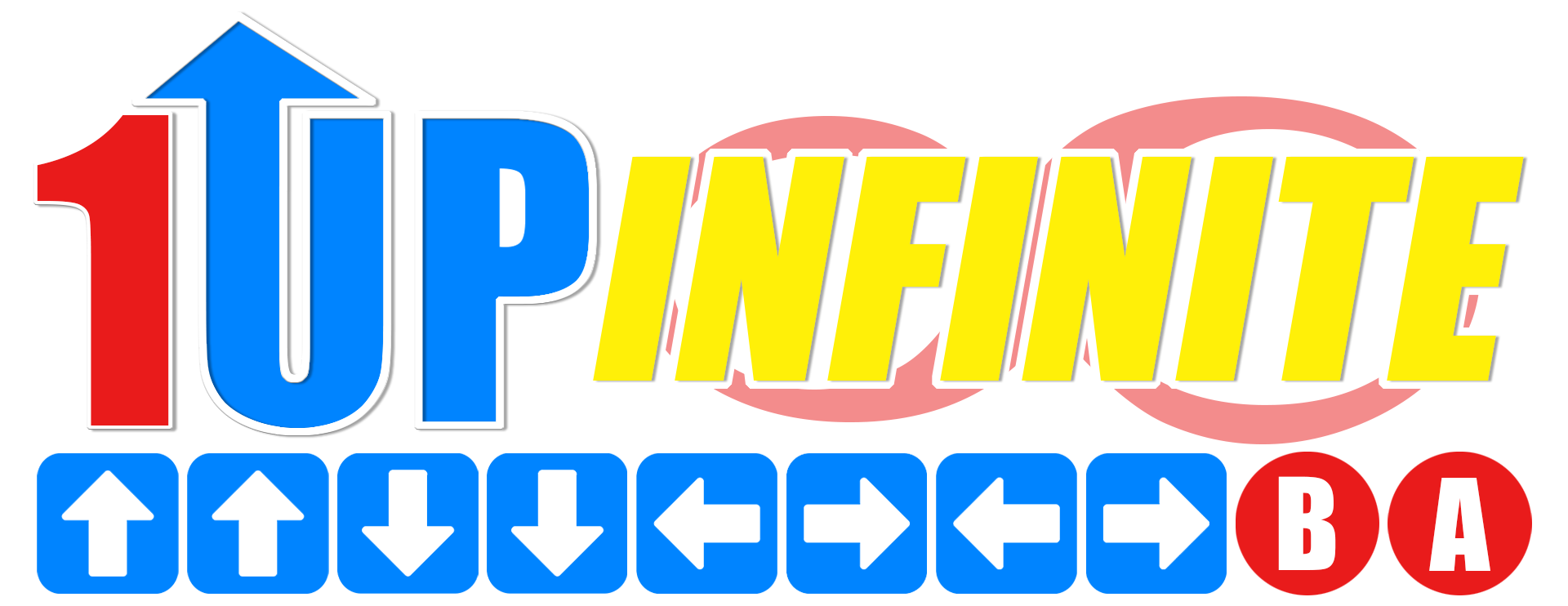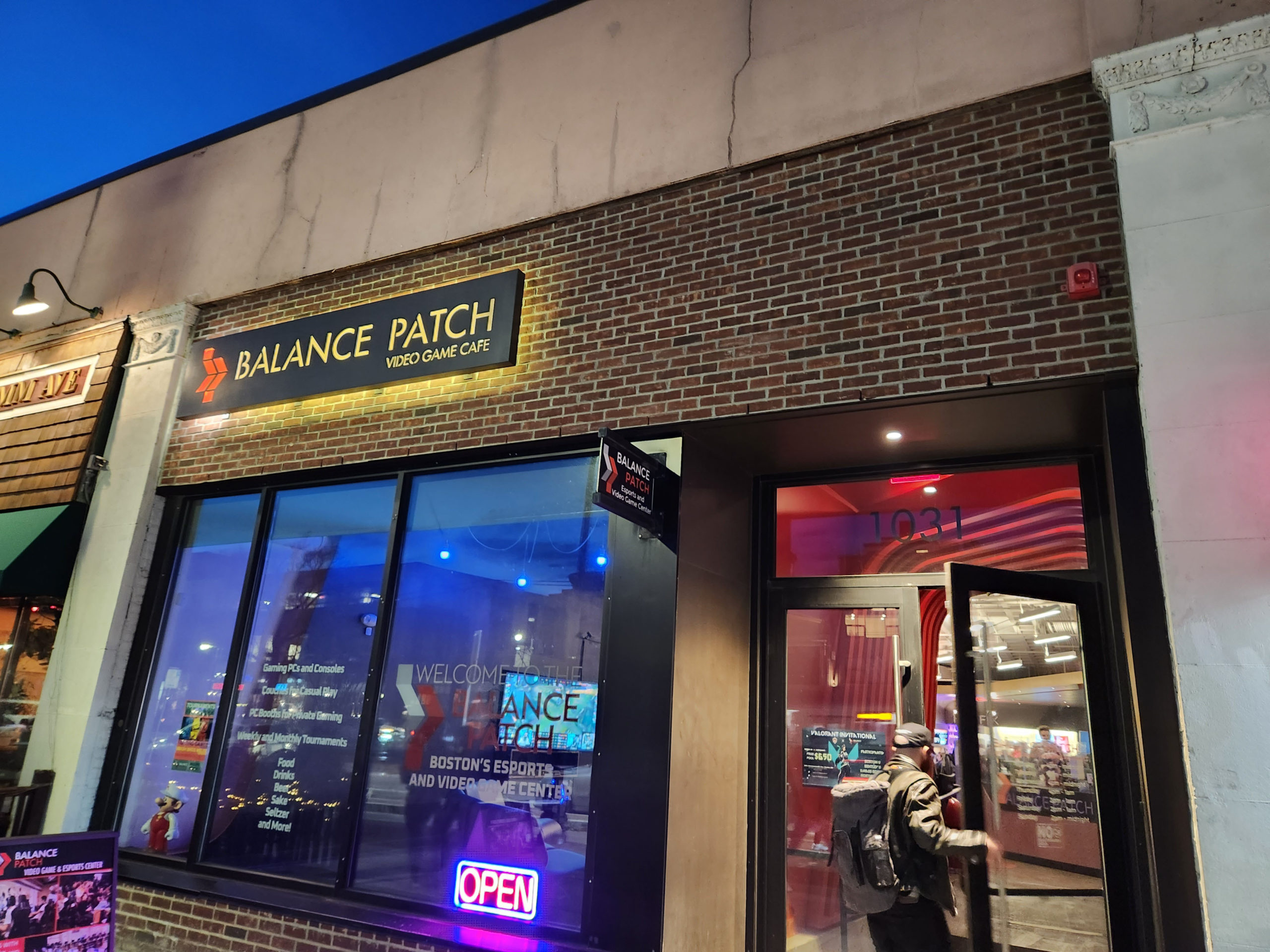On Friday, March 24th, I was introduced to the Boston fighting game scene in its natural habitat on a given weekly tournament as a slight detour from the PAX East 2023 action. The reason why this is included along with the rest of the soon-to-be-updated media posts is that this event was just as much a part of the PAX experience outside of the venue as it was if it was located at the convention center. Balance Patch is the central hub for competitive gaming in the Boston area, located on Comm Ave. It was far enough away from Boston, almost opposite adjacent to the convention center, but the trip was well worth the long rideshare trip.
Nestled along a busy strip filled with trams and cars, Balance Patch is a spacious venue with rows of PC setups to greet whoever enters the venue. The fighting game console setups rest in the back of the area, complete with a stream setup and a projector monitor that not only shows the stream but also a live bracket on who happens to be playing at the time. For example, my moniker, Flow Beat, would show "XXX vs Flow Beat" (with XXX being a "random person") along with a host of ongoing matches so that players are always aware if they are getting called.

I'm a big fan of Tekken as well as a supporter of the competitive scene, especially on a local scale, so I had my eyes set on arriving at BP for months. My planning stages began the moment I had confirmation that I would be covering PAX East and learning my mistake from last year with how much of a failure the barcade was, I knew if I wanted to get some competitive gaming in, I had to go to the hotspot in Boston. I wasn't alone in this as several friends and close associates also arrived for similar reasons. PAX East brought many gamers from around the world so it was only natural that more than a handful of competitors would make their way to the local and I was thoroughly impressed.
Aside from Tekken 7, Street Fighter 5, and Guilty Gear Strive, various other games include Virtua Fighter 5, Dragon Ball FighterZ, and even Sailor Moon S on the Super Nintendo Entertainment System. While the latter requires an entirely separate post as breaking down the science of a competitive Sailor Moon fighting game requires more context than Inuyasha Feudal Fairy Tale, Tekken 7 is always a simple equation to understand for those who have played the game for as long as I have. One thing that doesn't get mentioned enough is momentum.




Historically, I've been tied to the New York City Tekken scene for the past five years, despite playing competitively since Tekken 6 as a junior in high school. However, it is an entirely different ball game playing the game as an "out of towner" than a native. No matter where the player goes, if they aren't from around there, they are automatically placed with a target on their back. In this respect, it's not so much how good you are as a player, but how well you can adjust when you're playing against a hometown hero or a regular who is known as the local threat.
One thing to understand is that at the end of the day, regardless of the trash-talking, it's all love. The Boston Tekken scene has a deeply rooted player base that is all supportive of each other, but this is something I can say about each local Tekken scene in general. Each local scene is known for its own unique flair and everyone knows of each other's scenes, but it's rare to see other scenes converge into one location. I proudly wear my NYC Tekken sticker on the case that carries my controller and even that's recognized by other local scenes. Even Philadelphia had a "representative," in a manner of speaking, come out to support the event as well as check out the competition.

The food in Balance Patch was amazing, which is important in a place where players are expected to game for hours on end. Not mentioning exclusively the FGC, but also the LAN communities that play a host of computer games in any given town. This section of Boston is a "college town" through and through, with many of its residents being young adults. This led to another part of Balance Patch that I really enjoyed and it was inclusivity. Personally, as someone who is non-binary, I've always felt like there weren't many people in my local scene who were similar to me. I was pleasantly surprised to see how many LGBTQ+ competed, with most being regulars and competing almost on a weekly basis.
While the competition is as fierce as the confidence that Boston exhibits, especially in support of their own, it brought me back to how far the FGC had come in recent years. Another huge plus was how organized each bracket was, with a set list of well over ten games. Each game is handled by a different tournament runner and they all begin roughly at the same time. They also all ended their final sets at the same time as well, which is an absolute rarity for tournaments with multiple brackets.

Future and present PAX East attendees who wish to view the Boston FGC competitive scene through a magnifying glass, or those who wish to see more gaming outside of the Convention halls, can add Balance Patch to a list of locations one must check out when they are in the city. It's reasonable to arrive as there are ridesharing apps to get there, of course. There are also public transportation options including the tram and buses that let players off reasonably close. I wanted to thank the various tournament organizers for having us attend their event! It was hospitable, competitive, and overall a refreshing experience to escape from the hustle and bustle of PAX East. A moment's reprieve, if you will.

